Published Sep 26, 2014
EXCLUSIVE INTERVIEW: Part II, Nicholas Meyer on Directing
EXCLUSIVE INTERVIEW: Part II, Nicholas Meyer on Directing
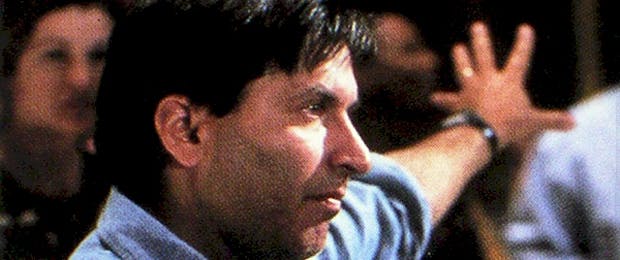
Star Trek is warping fast toward its 50th anniversary, and there are several behind-the-scenes figures without whom it wouldn’t be possible: Gene Roddenberry, Gene Coon, Harve Bennett, Rick Berman, Nicholas Meyer, Dorothy Fontana, Robert Justman and, yes, J.J. Abrams. Of those still alive, StarTrek.com has interviewed Bennett, Berman, Fontana and Abrams, but Meyer had eluded our grasp… until now. Meyer directed (and co-wrote, uncredited) Star Trek II: The Wrath of Khan, co-wrote Star Trek IV: The Voyage Home and co-wrote and directed Star Trek VI: The Undiscovered Country. He’d done plenty of strong work before hooking up with Trek (The Seven Percent Solution, Time After Time), did more in between Treks (The Day After) and has done even more since (Sommersby, The Odyssey, Elegy and Houdini), but most people, when they think of Meyer, associate him with Star Trek. In fact, he titled his memoir, “The View From the Bridge: Memories of Star Trek and a Life in Hollywood."
The writer-director-author will make a rare convention appearance next week when he takes the stage at Destination Star Trek 3 in London, and that upcoming event provided us with the long-awaited opportunity to speak with Meyer. Meyer talked frankly about his contributions to Star Trek, and he did so in detail, addressing so much ground that we’re running this interview over the course of three days. Below is part two. Read Part One, and visit StarTrek.com again tomorrow to read part three.
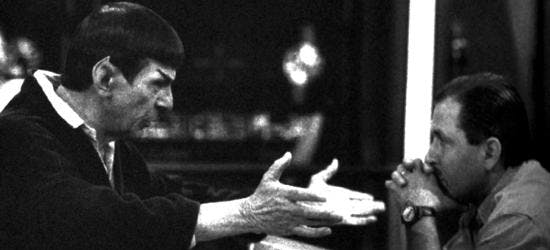
Take us to Spock’s death scene, and the Katra transfer, and the “Remember” line. How true is the story that Leonard Nimoy had such a good time doing II that Spock’s death was pushed to the end, and the “Remember” line and the funeral sequence and torpedo casing on the Genesis planet were added so he could come back for Star Trek III if it ever happened.
MEYER: Spock’s death in my screenplay was always at the end.
Really?
MEYER: Yeah. It was always at the end. In one of the five drafts… we picked things, as I say. We picked Kirk and his son. We picked Khan. We picked Genesis. We picked Lt. Saavik. These were all the elements of these other scripts, which I cobbled together with my own dialogue and plotting. Spock may have died in the middle of one of those drafts. I honestly don't remember. It’s been many years. But I do know that I absolutely put him at the end. Then, there was a simulator sequence that I liked. That was in the middle of a draft, and so I put it at the beginning. I remember, I was sitting with Harve Bennett in one of the Paramount projection rooms. I was sitting behind him. By this point, we had been getting letters from a lot of people who were very alarmed at the prospect of Spock dying. I remember I got one that said “IF Spock dies, you die.” I was mumbling to myself about these letters, while we were waiting for the projectionist to thread up something, and I said, “Yeah, we should kill him in the first scene. Kill him in the simulator sequence.” Harve whirled around and said, “That is brilliant.” So we suddenly killed him in the opening scene. Otherwise, he always died at the end. But “killing” him at the beginning sort of disarmed the audience, so they forgot that’s what the movie was about.
And as far as what happened toward the end of making the movie… yes. When Paramount saw the movie, when Leonard saw the movie, and everybody said, “Well, gee. Gee. Maybe killing him isn’t such a good idea.” And at that point, we got into the whole thing about “Remember” and showing his coffin on the planet, and stuff like that. All of which at the time I furiously objected to. I just thought this was so unfair to an audience of people who really care about this sh-t, and then saying, “You know, oh, it was just a dry hustle.” No, I didn’t think that was right. And in retrospect, you know, maybe I was wrong about that. At the time, I just thought that my vision of the thing was being insensitively overruled. But that’s when they made that insert, about “Remember” and put him on the planet in his torpedo.
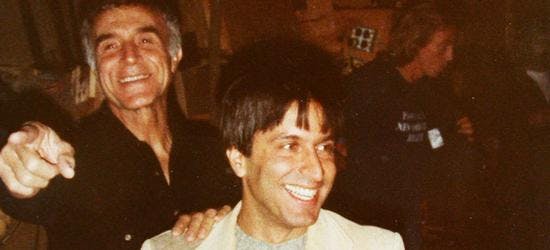
We’ve got to ask: What impressed you more, Montalban’s pecs or his performance?
MEYER (laughs): Well, I got used to the pecs very fast because I just saw 'em every day. He always worked out. He was very conscientious that way. But I must say, one of the great satisfactions – and I had a good time with all the actors, but I had a very interesting time with Montalban because he was the only actor who couldn't come to rehearsals. I wanted rehearsal and he was shooting his television series, so he couldn't come. So, aside from having lunch with him, that was it. And we didn’t know each other. He was a scrupulously courteous and well-bred gent whose credits were longer than I’m tall. He came in the first day, when we did the Botany Bay cargo bay sequence, and he had all the lines memorized. There’s about six pages of monologue about why he’s so pissed off at Kirk. He did it all letter-perfect, and he hit all the marks I arranged for him. But, he was screaming the whole thing. Everybody was sort of staring, and I was staring. I thought, “What do I do? I don't really know this man. He doesn't know me. What is he going to make of some snot-nosed kid telling him how to play it?”
But I said, “Well, okay. Let’s let them do their lighting. And we’ll go into your trailer and chat a little bit.” He said, “Okay.” We went into the trailer, and I said, “You know, Laurence Olivier once said that an actor should never show an audience his top… because once you show them your top, they know you got no place else to go.” He said (in a pretty spot-on Montalban imitation), “Oh. Oh.” He said, “Oh, you’re going to direct me. That’s very good. I need direction. I don't know what I’m doing up there.” That was the beginning of our collaboration. I think I also said to him on that occasion, “You know, crazy people don't have to raise their voice. Because you just never know what a crazy person is gonna do NEXT!” And I reached out and lunged for his neck. He laughed, and suddenly he got the whole character.
Next, Star Trek IV rolls around. How did you become involved with that one?
MEYER: There were other writers, two other writers were hired to write the story that Leonard and Harve had cooked up. I wasn’t part of any of this. I got a call from my friend Dawn Steel, who was running Paramount at the time, or was head of production, or whatever the title was, saying, “We’ve got an emergency here. Your friends need you.” So, I came in and I said, “What’s going on?” They said, “Well, we have a script, and we’re throwing out the script, but we like the story and we want to start again.” I said, “Should I read the script?” They said, “No, don't read the script. Go talk to Harve and Leonard.” They told me the story. Harve said, “Can you write the parts on earth, and I’ll do the bookends? I’ll do the beginning and the end.” I said, “Okay. Do they have to go to San Francisco in a time travel movie, because I’ve already done that? Can't we go to Paris?” They said, “No, we can't go to Paris.” So, I wrote all the stuff on Earth, beginning from when someone says, “When are we?” And Spock says, “Judging by the pollution content of the atmosphere, we’ve reached the late 20th century.” And from there until they go back into outer space, was all my stuff. I recycled a lot of things that I’d had to cut out of Time After Time. I just found a place for it in this, because it was virtually the same.
Was there a part of you that wanted to be back in the director’s chair, and was at all disappointed about just handing off the script? Or no?
MEYER: No. I was directing another movie. I don't even remember what it was. So, this was like, “Do this.” You know, The Wrath of Khan script got written in 12 days. This script got written in… I don't know. It wasn’t 12 days, but it was pretty fast, because they had their sets built. They were in such a hurry, which is not a bad way to make a movie, sometimes, because you don't go through tens of people’s notes, and second guessing, and draft after draft after draft. You do that and you lose the spontaneity of things. So, it wasn’t 12 days before, but it was fast.
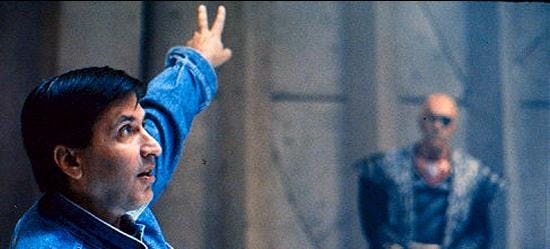
You returned to co-write and to direct Star Trek VI. That story could not have been timelier. How organically did that come together?
MEYER: Well, I had been asked to do Star Trek V, and I said, “What is it?” And they said it was the search for God. I said, “Gee. I don't know how that ends. So...” And I was making another movie. I was directing The Deceivers for Merchant Ivory in India, with Pierce Brosnan. So, I couldn't have done it, anyway. So, it came out while I was away, while I was in India. Then, I was back in London editing The Deceivers, and Frank Mancuso and Martin Davis took me to lunch at Claridge’s. They said, “We want to make another movie with the original cast. We like to make one more with the original cast. Would you like to do that, be a part of that? And we’re talking doing it for around 30 million bucks.” I said, “Okay.” I don't recall asking, “Do you have an idea for it?” I didn’t. I never do. Then, after that – because it was gonna be executive produced by Leonard – I was vacationing after The Deceivers was finished... Maybe it’s not The Deceivers. I think it was another movie. It wasn’t The Deceivers. It was something else. But anyway, after that movie was finished, I was vacationing on the Cape. And Leonard, who’s from Boston, was in Boston. So, he flew to the Cape and spent the day with me.
He had an idea, the germ of an idea of how to make Star Trek VI. Basically, as he put it, “The wall comes down in outer space.” The wall had just come down in Berlin. As he explained to me, the Klingons had always been Star Trek’s stand-in for the Russians. If there was no more Soviet Empire, as there was no more Klingon Empire, who am I? Who am I if I have no enemy to define me? I guess priming the pump is all it took because as we were walking up and down the beach I was saying, “Oh, yeah, great. We start with this Chernobyl in outer space.” Leonard said, “Oh, you know, great.” Then I waited to hear from somebody. The next thing I heard was Leonard calling me in some consternation to say that Paramount had hired two other writers. I thought, “Well, why did they do that, after this whole conversation?” It turned out, I guess, that they thought they could get them less expensive than me. But in any case, that wasn’t working out. So eventually, I was brought on, and I brought on a writing partner who was then working as my assistant, a very talented guy who’s unfortunately no longer alive, Denny Martin Flinn. And he and I wrote the story that Leonard and I had cooked up on the beach.
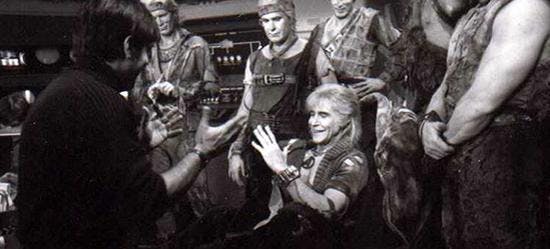
FYI, it was probably Company Business that you were busy with as opposed to The Deceivers. Company Business was your next film.
MEYER: Okay. Well, then, that was it.
Visit StarTrek.com again tomorrow for the conclusion of our exclusive interview with Meyer. And go to www.destinationstartrek.com for details about Destination Star Trek 3.

